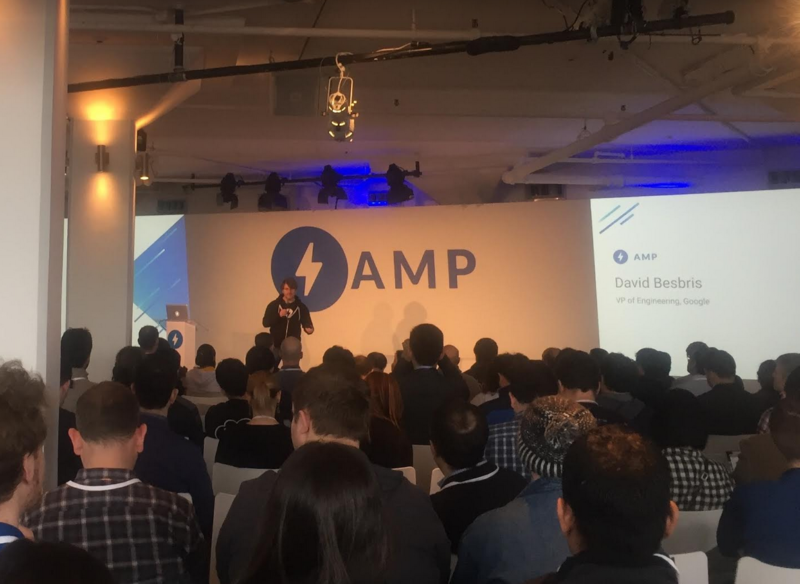AMP — Accelerated Mobile Pages — rolling out to 1 billion more people in Asia
Baidu, Sogou and Yahoo Japan are adopting the mobile framework.

The big news coming out of Google’s AMP Conf in New York is that the mobile framework is set to roll out to a billion more people in Asia. Chinese search engines Baidu and Sogou are adopting AMP; so is Yahoo Japan.
Google’s VP of Search and AMP lead David Besbris gave the morning keynote address and made the announcement. The addition of these Asian search engines will mean a billion more people potentially using AMP.
AMP launched in October 2015 and since that time has seen significant publisher and developer adoption. There are hundreds of millions of AMP-enabled documents across multiple geographies around the world. More than 10,000 developers have contributed code to the project.
Baidu, Yahoo Japan and Sogou join a growing list of content publishers and e-commerce companies using AMP. They include Bing, eBay, Pinterest, LinkedIn, Tumblr, WordPress, The Weather Company, Eventbrite, Shopify, Fandango, TripAdvisor, Disney, Food Network and numerous others.
Adobe reported last month that top US publishers are now seeing 7 percent of their traffic through AMP pages. Publishers report more time on-site and greater user engagement for AMP pages. They also say they’re seeing higher CTRs, and even better monetization, with AMP.
Google’s Besbris said that there are now 1.7 billion AMP pages, with 35 million new pages being added per week. There are also now 860,000 domains using AMP around the world.
According to Google research, 70 percent of conventional mobile pages take seven to 10 seconds for visual page content to load. By comparison, AMP pages load in less than one second, on average.
Google has said AMP is not a ranking factor, however, page speed is. Besbris has said in the past that AMP pages don’t receive a ranking boost. However, when there are two identical pages, one AMP and one conventional mobile page, Google serves the AMP page.
Contributing authors are invited to create content for Search Engine Land and are chosen for their expertise and contribution to the search community. Our contributors work under the oversight of the editorial staff and contributions are checked for quality and relevance to our readers. The opinions they express are their own.
Related stories
New on Search Engine Land
